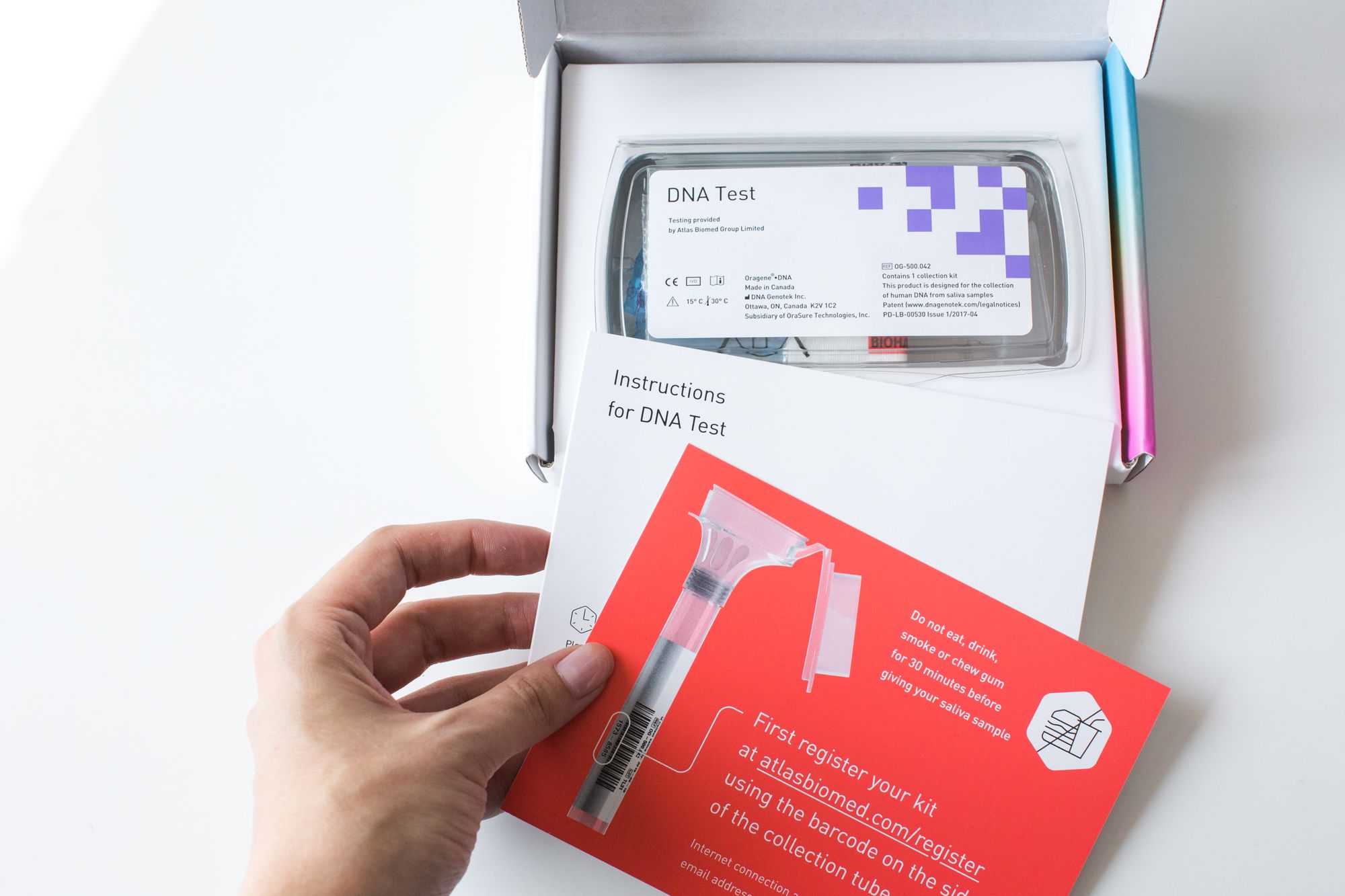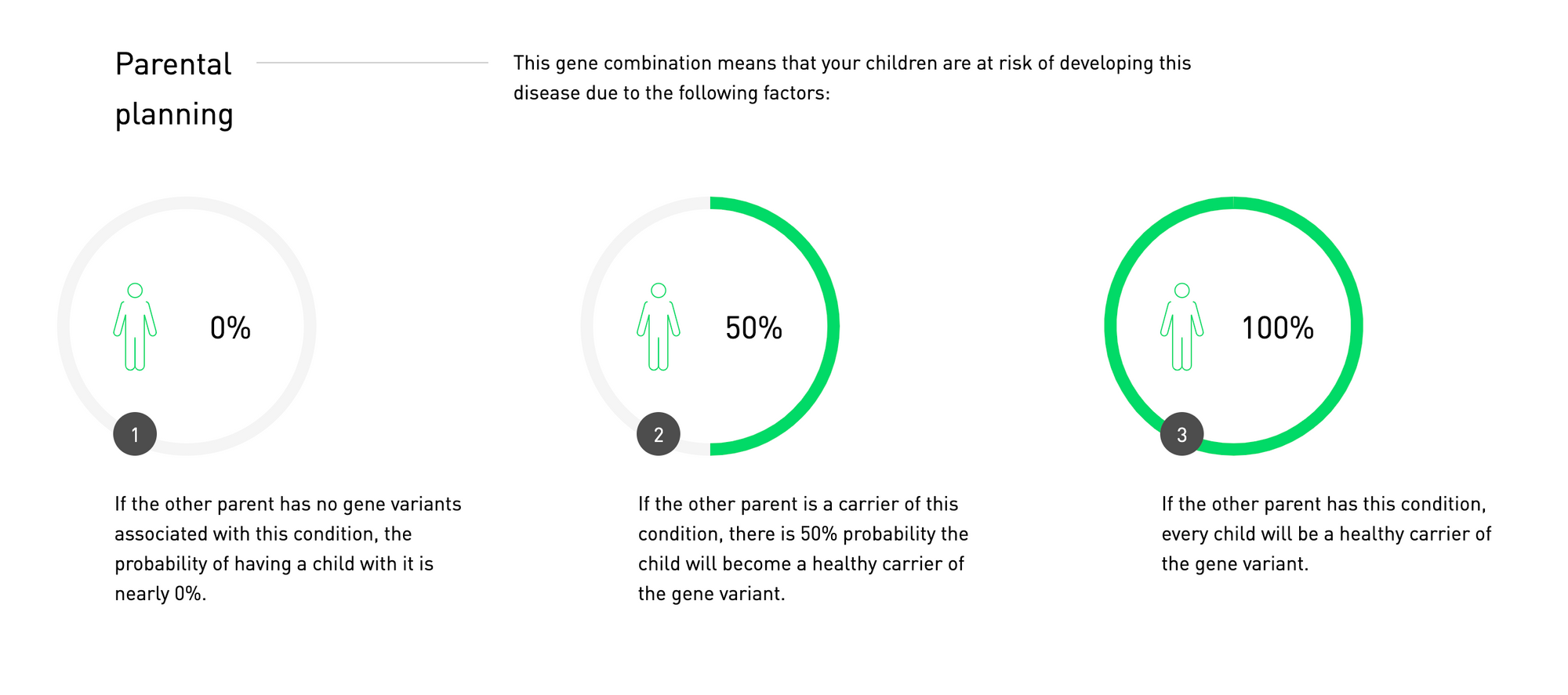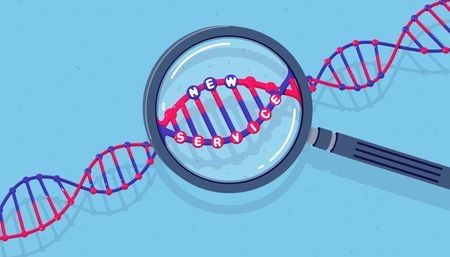A DNA test can detect shared genetic variants that may put future children at risk of developing a hereditary disease.
Not so long ago, it was nearly impossible to test for hereditary conditions prior to pregnancy. Invasive procedures to check the foetus were the main option, but genetic testing before pregnancy has changed the game.
Using DNA sequencing technology, it is possible to reliably screen parents for common gene variants associated with hundreds of hereditary diseases. By doing so, we can evaluate potential risks for future children. And with the help of a genetic counsellor, couples can find the best option to have a healthy baby.
These tests will likely become common practice over the coming decade because it only requires a saliva sample - no needles, tubes, or visits to a medical care provider.
What is genetic screening?
It’s now possible to analyse DNA from saliva, and even send it by post in a stabilised liquid solution for analysis at a lab.
That’s one of the services we provide at Atlas Biomed. When your sample reaches the lab, we extract the DNA, then we copy and multiply it (a process scientists call amplification). After that, it’s applied to a microarray chip (like a computer chip).
The chip has about 700,000 markers that can identify genetic traits linked to your health. The data is collected and analysed using our interpretation algorithm, which can identify gene variants linked to specific health risks and carrier status for diseases that are genetically inherited.

Our DNA test kit is very simple, just add saliva to the tube
This algorithm is able to transform all this genetic data into comprehensible results for humans. A team of geneticists review the (anonymous) results to make sure there are no errors before it is uploaded to the personal account where you can access this information.
We have taken special care to ensure that our results are accurate. Tens of thousands of scientific publications on genetic disease risks were personally read, assessed, and selected for the test based on a strict audit.
Each health trait featured in the personal account is backed up by studies with strict methodology, and assessed for the reliability of results and how frequently these traits are encountered in the population.
We don’t check for rare traits that are difficult to identify, or incur a high margin of interpretation error. That’s because providing genetic testing services comes with immense responsibility. And we take that very seriously.
“The purpose of these Principles is to promote high standards and consistency in the provision of genetic tests amongst commercial providers at an international level in order to safeguard the interests of people seeking genetic testing and their families.”
What a DNA test can tell you about health
The Atlas Biomed DNA Test has been designed by a team of MDs, geneticists, and biostatisticians that are passionate about preventive health. This field of medicine focuses on identifying health risks before they become a problem.
In addition to that, we provide information on genetic predisposition to high or low nutrient levels, food intolerances, and sports injury risks that are influenced by your DNA profile.
There are also some features that are not health-related, but that can tell you a little more about you based on the information hidden in your genes, like personal traits and genetic ancestry. You can read all about this in our article about results and how to interpret them.
| Report | What you'll learn |
| Common disease risks | Discover whether you are at low, average, increased, or high risk of 19 common multifactorial diseases influenced by genes and lifestyle |
| Hereditary disease status | See if you have any genetic disease risks (322 traits), and what it means for you and your children |
| Nutrition and metabolism | Explore how genes impact your vitamin/mineral/nutrient levels, taste preferences, food intolerances, and caffeine metabolism |
| Sports and injury | See how DNA influences your metabolism and if your genes indicate any specific injury risks |
| Personal traits | This part reviews unique ways that your DNA influences your appearance and perception of the world |
| Genetic ancestry | Your parent’s haplogroups, Neanderthal DNA in your genome, and ancestry composition by location |
| Insights | Personalised lifestyle recommendations designed to reduce your disease risks and improve your wellbeing | Health questionnaire | Answer the questions to get the most accurate risk profiles and recommendations based on your lifestyle |
How DNA testing can help future parents
When a person takes a DNA test, our algorithm checks their carrier status for 322 hereditary conditions.
This means that it can identify gene variants associated with hereditary disease. Most people don’t become sick with genetically inherited diseases, but they are carriers of this information in their genetic code.

Here's how we present your hereditary transmission risks
Genetic testing for parents allows them to see if they have any shared carrier statuses for a disease that could make their child sick. Our test evaluates the probability of a child becoming sick with a specific hereditary disease based on this information.
Depending on the hereditary condition, the probability of a future child becoming a carrier or developing this illness can vary immensely. Different diseases have different risks of being transmitted as a carrier status or an active disease, ranging from 0-100%.
We’ve displayed this information simply and clearly in the personal account, and included recommendations if you need to consult a genetic counsellor. There are specific situations in which parents can benefit from DNA testing when planning a family:
| Situation | Why |
| Family history of inherited illness | If a close family member has a hereditary disease, this information might be in your DNA too. |
| Several miscarriages | If a woman has had several miscarriages without an identified cause, it may be related to a genetic issue |
| Stillborn child with genetic illness | If a stillborn child displayed signs of a genetic condition, it’s important to get a DNA test and consult a genetic counsellor |
| Child with a severe birth defect | If the couple has a child with a severe birth defect that was not associated with other causes (like exposure to toxins) |
| Child with a genetic illness | If a child has health problems linked to a genetic syndrome, the parents should get checked for genetic carrier status |
When to consult a genetic counsellor?
Genetic counsellors are experts on the health aspects and transmission patterns of hereditary diseases.
Their job is to assess DNA testing results and guide future parents in their options for conceiving a healthy child. We offer genetic counselling services upon request. If you are interested, just email us at [email protected]
It’s important to remember that the Atlas Biomed DNA Test is designed for informational purposes only. This means that we can provide information on risks, but that you should always consult a doctor regarding diagnostic testing.
Only specific tests prescribed by doctors can confirm the existence of a genetic risk. Genetic screening tests are designed exclusively to analyse gene variants for each disease, and a genetic counsellor is able to advise on this.
If a carrier status is identified in your genetic data, don’t worry. For most people, this is not a problem, nor does it mean they will become sick. It simply means that a little extra caution is warranted by planning your family.
Blog subscribers receive a 10% discount on all Atlas Biomed Tests, all you have to do is sign up for weekly newsletters.




















